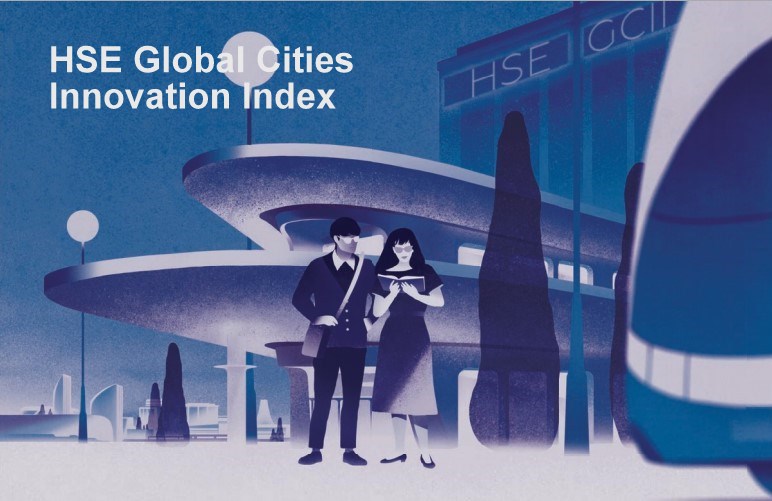
Global Innovation Index 2021 Unveiled
Russia has improved its position in the Global Innovation Index (GII) 2021, ranking 45th among 132 economies and closing the distance to leading countries thanks to better performance in all areas of research, innovation, and creative activities. For the past several years, the Institute for Statistical Studies and Economics of Knowledge (ISSEK) at HSE University has provided advice on the research underlying the index. This year, ISSEK became one of the nine members of the GII Academic Partners Network.

HSE University Presents First Global Cities Innovation Index
According to HSE University’s Global Cities Innovation Index, New York and London are the world’s most attractive megacities to innovators implementing creative and technological initiatives. Moscow ranked among the rating’s top ten cities, leading in the areas of ‘Innovation Infrastructure’ and ‘Digital Infrastructure and Services’. HSE researchers presented the index at this year’s Open Innovations Forum.
Science. Technology. Innovation: 2020
This pocket data book contains the main S&T and innovation indicators for the Russian Federation. The publication includes the most recent statistical data on R&D input and output, as well as international comparisons.
Education in Figures: Pocket Data Book
The pocket data book contains main indicators characterizing trends in the developmentof general, as well as lower and secondary vocational and higher education in the Russian Federation. It also covers key education indicators for OECD countries.
Leonid Gokhberg: “After Each Crisis, Innovation Activity Tends to Leap”
HSE published a new issue of its statistical data book “Indicators of Innovation: 2017” (in Russian). HSE First Vice Rector and ISSEK Director Leonid Gokhberg comments on the current situation with innovation activities in the country as reflected in official statistics.
Social Demand for New Technologies
Russians turn out to be rather conservative in their perception of new technologies, innovative products and services, and willingness to use. That was discovered in the course of a survey conducted by the ISSEK experts in the scope of the Monitoring Innovative Behaviour of the Population study (2015-2016). The results are presented in the current issue of the Science, Technology and Innovation newsletter.
Who Studies Russian Science and How?
On February 8, Russian Science Day, the Higher School of Economics, along with the Russian Federal State Statistics Service (Rosstat) and the Ministry of Education and Science, released its annual statistical data book on the state of science, technology, and innovation. Below, the Director of the HSE ISSEK and HSE First Vice Rector Leonid Gokhberg discusses how research on science in Russia is advancing.
Russian Science, An Insider’s View
February 8th is Russian Science Day. How do people, directly involved in the process of generating and advancing new knowledge - scientists, entrepreneurs and public servants - assess the health and potential of Russian science today? Here are the results of a survey by HSE researchers in which experts, representatives of government bodies, scientific organisations, universities, hi-tech companies and social organisations express their views on the state of science in Russia and what should be done to improve it.

